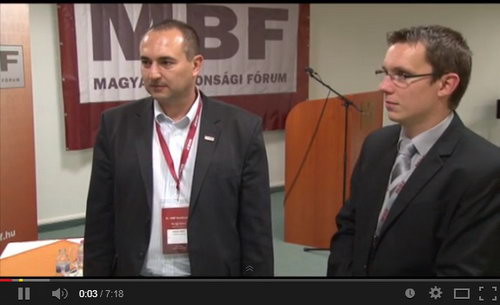Az USA több államában is törvénnyel védik már a közösségi oldalakra kihelyezett adatokat. Legutóbb Kaliforniában, ahol is az államok legszigorúbb adatvédelmi törvényét fogadták el, amellyel azt kívánják megakadályozni, hogy a főnök vagy az oktató hozzájusson személyes adatokhoz az olyan közösségi oldalakról, mint a Facebook vagy a Twitter.
Ezen túl a cégek vagy az iskolák nem kérhetnek hozzáférést a dolgozó vagy a tanuló közösségi oldalra föltett adataihoz vagy az e-mail fiókjához – áll a frissen aláírt törvényjavaslatban.
Az eddigi gyakorlat az volt, hogy a munkáltató elkérte a dolgozó jelszavait vagy az állásinterjún belenézett a jelölt közösségi oldalába. A vállalatok vagy iskolák egyre jobban figyeltek munkavállalók és a diákok személyes oldalaira a Facebookon, a Twitteren vagy épp a Google+-on, ahol is kompromittáló fotókat vagy kényes megjegyzéseket kerestek. És mivel van lehetőség az idegenek elől elzárni az oldalakat, elkérték a hozzáférést a személyes adatokhoz. Több példa is volt arra, hogy aki megtagadta a leendő munkáltatótól a hozzáférést, azt nem alkalmazták. Most több államban is törvényi úton kívánják megszüntetni ezt a gyakorlatot.
Törvény szerint eddig sem volt már joga a munkaadónak vagy oktatónak a jelöltet olyan személyes adatiról faggatni, mint például életkor, családi állapot és szexuális irányultság. Ezeket az információkat az e-mailekből vagy a közösségi oldalakról próbálták megszerezni. Azokhoz adatokhoz, amelyeket nem védünk, bárki hozzáférhet, a törvény most azt mondja ki, hogy a védett adatokhoz ne kérhessenek hozzáférést a cégek. De mindenképp javasolt, az adatvédelmi beállításokra figyelni, hogy ne férhessen bárki személyes adatainkhoz. És a törvényektől függetlenül is alaposan meg kell gondolni, ki, mit tesz közzé magáról az Interneten.
Kalifornia az első állam, amely egyaránt törvénnyel védi a diákokat és a munkavállalókat. Marylandban és Illinoisban idén jóváhagyott törvények csak a munkavállalókat, amíg Delawareban csak a diákokat védték. Ma már tucatnyi más állam és a kongresszus is fontolgatja hasonló jogszabályok megalkotását.
Forrás: Joel Griffin írása, www.securityinfowatch.com
Best practices for dropping a monitoring customer
by Joel Griffin
Industry experts discuss the financial, legal implications of disconnecting accounts
California, home to many of the world’s social media companies, now has the nation’s strictest privacy laws preventing your boss or college from surfing through the personal information you post on sites like Facebook.
It will be illegal for companies or universities to ask for access to your personal social media or email accounts under two bills signed Thursday by Gov. Jerry Brown.
“The Golden State is pioneering the social media revolution, and these laws will protect all Californians from unwarranted invasions of their personal social media accounts,” Brown said in a statement.
Recent accounts of employers asking for personal passwords or requiring applicants to open their Facebook pages during interviews sparked the new laws.
Companies and universities are increasingly trying to keep tabs on workers and students — and vet prospective hires and admissions — by monitoring their personal pages like Twitter and Google (GOOG)+ to see if they’ve posted anything like drunk photos or insensitive comments. But many people block public access to these posts through privacy settings.
Then in March, details of Maryland correctional officials asking for access to job applicants’ personal Facebook accounts led to similar stories around the nation. Some people said they were turned down for jobs after refusing to give employers their social media information, prompting lawmakers around the nation to propose bills banning the practice.
“No boss should be able to ask for this kind of personal information,” said state Sen. Leland Yee, D-San Francisco, who wrote the California bill banning schools from asking students for their passwords. “You don’t go on a fishing expedition when (people) apply for a job or admission for college.”
Proponents say the laws apply 21st century reality to existing standards that protect job hunters and school applicants from giving out personal information like age, marital status and sexual orientation — details often revealed on social media pages.
“There’s enough information on the Internet where you can find out ample information about people — about what is relevant to hiring a person,” said Jacqueline Moshref, a human resources manager for a small medical device company in Sunnyvale. Anything more “is an invasion of privacy.”
Despite the laws, there is nothing to prevent employers and universities from looking through your social media pages if they are made public. Experts recommend tweaking your privacy settings to protect yourself so not everyone can see your personal posts.
“You still need to be very careful with what you post online,” said Bradley Shear, a Maryland-based social media attorney who advised lawmakers in California and other states on their new laws. “It still comes down to common sense.”
California is the first state to enact laws protecting both students and workers after Maryland and Illinois earlier this year approved laws affecting just workers and Delaware did the same for just students. About a dozen other states and Congress are considering similar legislation.
The two laws — SB 1349 from Yee and AB 1844 from Assemblywoman Nora Campos, D-San Jose — overwhelmingly passed the Legislature in late August and had broad support from employee unions, technology companies and consumer groups.
Source: www.securityinfowatch.com










